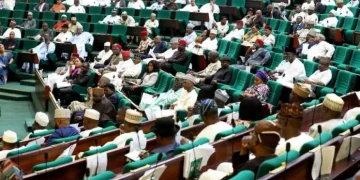Despite the rapid growth of digital finance tools across Nigeria, a majority of users are still unable to effectively monitor their spending, a new national survey has revealed.
According to the 2025 Nigeria FinTech Survey Report by research firm Column, 66 percent of respondents admitted they do not know how much they spend weekly or monthly, even though they actively use fintech apps. The report, which surveyed 1,126 Nigerians between the ages of 18 and 44, highlights a widening gap between digital financial access and actual budgeting behavior.
As more Nigerians adopt platforms like PiggyVest, Kuda, and Palmpay, the expectation is that financial awareness and discipline would improve. However, the findings of the survey suggest that access to fintech tools is not translating into control.
The lead researcher at Column, Uche Nnaji, in an interview with LEADERSHIP, said this is a wake-up call. “We found that while fintech adoption is widespread, financial literacy and behavioral engagement are lagging. Nigerians aren’t just downloading these apps, they are using them, but the outcomes aren’t matching the potential,” Nnaji stated.
As Nigeria’s fintech space continues to grow, the industry’s ability to deliver real financial empowerment will depend not just on who can build the fastest app, but on who can help users slow down, reflect, and take charge of their financial lives.
One of the most striking insights from the survey is the fragmented way users manage their finances. Instead of relying on a single platform, many respondents use multiple apps for different financial functions. While 35.6 per cent of respondents use two fintech apps, 20.9 per cent use three.
Only 29.4 per cent manage their finances through one primary tool. This fragmented approach is creating a financial blind spot, according to the report.
With income, savings, and expenses spread across different apps, users often struggle to form a clear, holistic picture of their finances.
“People are juggling apps, but not building structures. The tools are out there, but integration is missing. Nigerians need a centralised dashboard that brings their money into one view, otherwise budgeting remains guesswork,” fintech analyst, Damilola Adebayo added.
The survey shows this is not just a theory, as Nigerians themselves are calling for it. A significant 75.2 per cent of respondents said they want a single app that consolidates all their financial activity, including savings, transfers, budgeting, and expenses.
Meanwhile, overspending remains a major concern. Around 17.1 per cent of users admitted to spending impulsively or without any structured plan, and only 57.2 per cent reported that they stick to their budgets. This underscores a troubling pattern, in that, even with digital tools at their fingertips, many users are not building the habits that lead to long-term financial health.











